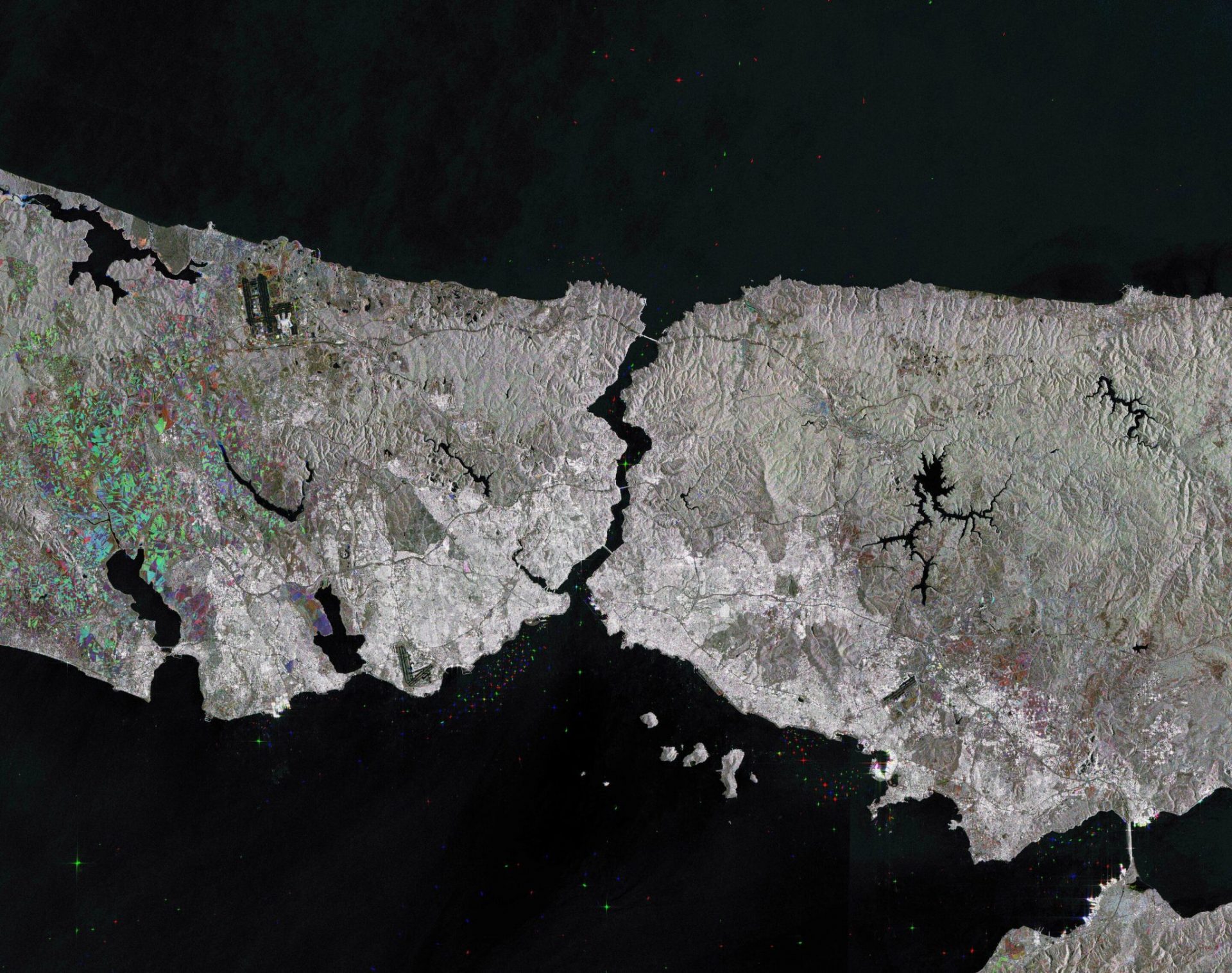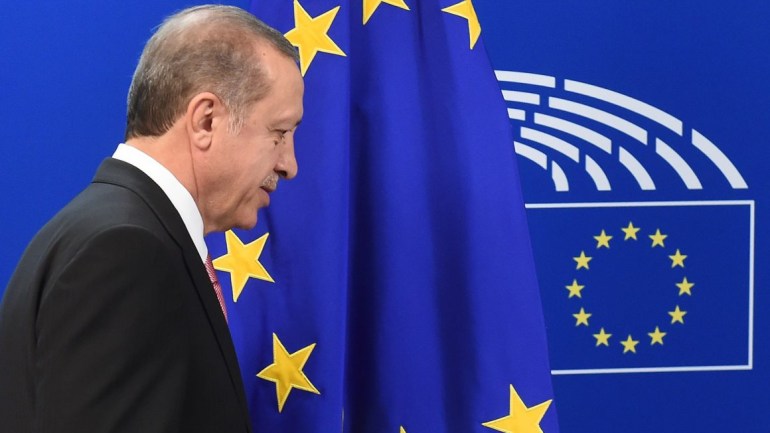
In a recent interview Aleksei Erkhov, Russia’s envoy to Ankara, declared regarding the new waterway the Turkish regime vows to build between Black and Marmara seas that “As long as it keeps the situation according to Montreux unchanged, it’s a Turkish matter”. It is highly unlikely that the ambassador could be unfamiliar with the disastrous environmental consequences of the Kanal Istanbul on the Black Sea and rivers of Russia. So let’s write this off as a diplomatic manoeuvre.
The latest deed with across-the-border consequences of the regime of Turkish President Recep Tayyip Erdoğan dates actually back to 2011. The frivolity as well as the financing of this mammoth construction work has always held it back. Now the regime, short of domestic support and cash, seems to resort to this deadly fantasy, appropriately nicknamed by the rulers “Crazy Project”.
The artificial waterway would connect the Black and Marmara seas adjacent to the Bosporus Strait, with its banks filled with trade centres and concrete housing clusters. According to its promoters, it will reduce the Bosporus ship traffic, thus the risks of accidents.
To start with, legal significances of the canal make it highly controversial, as hinted by the Russian ambassador. The Montreux Treaty gives Turkey full control over the Turkish straits and guarantees the free passage of civilian vessels in peacetime. With the project, there will be a charge for crossing of the canal. As for the Bosporus traffic, experts reject it as irrelevant.
Much more seriously, the canal would have irreversible consequences. It will affect not only its immediate environment, but also the whole area from the Black Sea to Dardanelles and naturally the Aegean Sea. In addition to Turkey, it will have massive environmental impact on the Black Sea riparian nations, Greece as well as countries crossed by the Danube, Dnieper, Dniester, Don and Volga that are feeding the Black Sea.
According to Professor Cemal Saydam, a veteran oceanographer from Hacettepe University in Ankara, if the work materializes, the balance will be reversed between the cold and fresh waters of the Black Sea and the warm and salty waters flowing from the Mediterranean across Marmara Sea into Black Sea.
The Black Sea is approximately 30 cm higher than the Marmara Sea, but there are two-way streams between the two, through the natural channel, the Bosporus. The one-way tap of the canal will force Black Sea to constantly supply fresh water to Marmara Sea without being able to be fed by the reverse streams that exist in the Bosporus supplying the Black Sea with warm and salty waters from Marmara.
That will be the beginning of an irreversible disaster, as the Black Sea will be emptied twice as fast with two taps while the flow rates and capacities of the rivers that feed the Black Sea stay the same. While the Black Sea dries up and disappears, the warmth and the salinity of Marmara and the Mediterranean seas will change. The Marmara Sea will become a putrefying water mass that is irreversibly altered, with devastating consequences for marine and Istanbul urban life. Erdoğan’s dream of magnificence is poised to become a universal nightmare.
In view of so many odds, one may think that the project is unrealisable. Given the state of political life dominated by one individual and the dire economic situation of the country, it is highly probable that the work will go ahead. The tender for the building companies is already published and the report on the environmental impact has been accepted without waiting for the legal challenges and land speculation, especially by investors from the Gulf Emirates’, has already started. Erdoğan never bluffs.
Citizens of Istanbul who are aware of the irreversible impacts and dangers of the canal are sparing no effort to build a widespread coalition in order to intervene by all possible means and to prevent the work. It goes without saying that their legal action will be outright rejected by the regime. Therefore, the most efficient way would be to mobilise external stakeholders who should officially require the EIA report hastily prepared by pro-regime consultancies and lack any scientific relevance according to experts.
At the same time, a European-wide awareness campaign on the hazards of the work would help to raise the attention of the public opinions in European countries and concomitantly that of the decision makers at national as well as EU levels, who would invite the Turkish regime to take its trans-boundary responsibilities seriously. The same goes for non-EU countries, which would be affected by the work, including Georgia, Russia and Ukraine.



